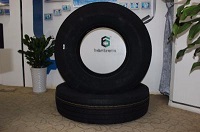Polymers Petrochemicals Automotive Recycling 11-03-2019 - Arhive
Polymers Polyethylene Terephthalate Petrochemical
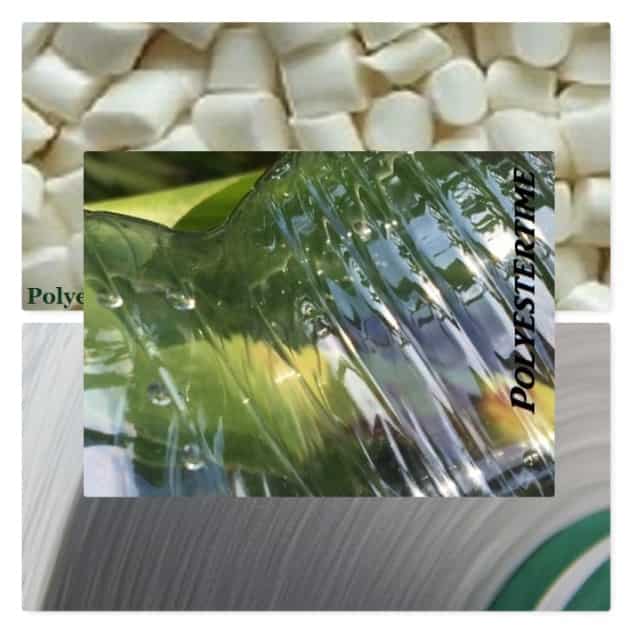
Crude Oil Prices Trend

Polyethylene terephthalate (PET) markets in both Europe and Asia are showing upward pressure on production costs in what should be the start of peak sales, yet buyers in central Europe are holding back.
– Feedstock costs firm
– Central Europe buyers reject higher prices
– Impact of Asia imports to Europe
There is evidence of the anticipated rise in March feedstock costs, with a paraxylene (PX) contract already concluded in Asia, which, as the dominant market, would normally translate to higher prices in Europe. The pressure is on.
However, this is failing to prompt the usual effect of increased PET sales prior to an expected price increase.
BUYERS’ REACTION
Sellers in Europe have been separately targeting moderate price increases for March PET, and while there has been some success, a lot of European buyers are rejecting the higher numbers and pushing for a returnto February prices.
“After the hiatus of Q2 last year, [producers] managed to hold on to margin, so if we ask for €20/tonne [more] and raw material proves to be €30/tonne, then it’s not a disaster,” a seller said.
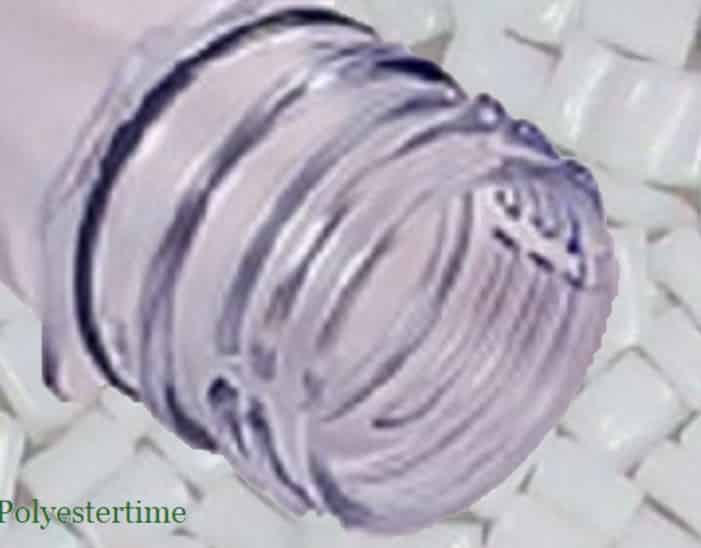
Sinterama, a European leader in the production of coloured polyester threads and yarns, is celebrating 50 years. By offering a wide variety of specialist polyester yarns, Sinterama Asia experienced high visitor footfall and back-to-back client meetings during last year’s Yarn Expo Autumn, the company’s first ever trade fair in China.
The next autumn edition of Asia’s leading trade platform for the yarn and fibre industry will take place from 25-27 September 2019, welcoming quality suppliers from around the world showcasing natural and blended yarns including cotton, wool, flax, and man-made fibres and yarns, as well as specialty products including elastic, fancy and blended yarns. Meanwhile, Yarn Expo Spring is getting ready to open its doors next week.
The show organisers sat down with Ashish Puri, Managing Director of Sinterama Asia, to discuss how the company presents its greener solutions to the Chinese market.
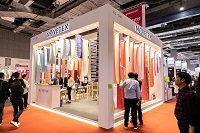
The company’s two latest technologies, 223 and Racetrak, are said to be a step-change in the affordability of composite materials.
Williams Advanced Engineering (Grove, U.K.) has published a white paper to introduce its proprietary, patent-pending carbon fiber composite technologies and their benefits to automotive and other industries. The company’s latest pair of technologies, known as 223 and Racetrak, are said to be a step-change in the affordability of composite materials.
According to the company, 223 and Racetrak offer comparable performance to existing composites solutions, but include additional benefits and will be available at a cost that brings them within reach of mainstream applications. They are said to be end-to-end, whole-life solutions that address every aspect of the manufacture, use and recycling of carbon fiber-reinforced polymer (CFRP) and the way in which carbon fiber’s properties can enable new approaches to vehicle design and manufacture.

Oil nudges higher on Venezuela and Iran sanctions, OPEC cuts
* Venezuela’s PDVSA struggles to export oil amid U.S.sanctions
* U.S. crude oil inventories rise amid record output – EIA
* U.S. crude output & inventory levels: https://tmsnrt.rs/2VegNR3 (Adds comment, updates prices)
Oil edged up on Thursday amidongoing OPEC-led supply cuts and U.S. sanctions againstexporters Venezuela and Iran, but price gains were capped byrecord U.S. crude output and rising commercial fuel inventories.

Oerlikon Group announces successful results for 2018. In 2018, Oerlikon Group increased their net sales by 26.2% and orders by 23.5% and increased their market power by focusing on two main segments. Group’s Surface Solutions and Manmade Fibers Segments both recorded growth with double digits.
Oerlikon, a global technology and engineering group, announced that they have achieved very successful financial results both in general and on segment basis in 2018. Significantly increasing their net income due to their strong operating performance in all business units, the group continued to be one of the most important technology suppliers of the textile industry with the technologies they developed for the manmade fiber industry.

Mechanical recycling has the biggest potential to provide value to the circular economy, the chairman at the World Plastics Council (WPC) said on Thursday.
Jim Seward, who is also an executive at chemicals major LyondellBasell, said: “There is a hierarchy. We need to push mechanical recycling as far as it goes just because of the value it brings. That’s probably how you can bring the most value.”
Seward was speaking at the IdentiPlast conference in London.
In several European recycling markets, a shift in consumer attitudes to plastic and the resulting raft of brand commitments to minimum recycled plastic content from packaging firms has meant that demand for material outweighs supply, particularly for food-grade material.
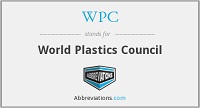
Since mass production of plastics began more than a half-century ago, 8.3 billion metric tons of the stuff has been created. According to a recent study, only 9 percent of that – less than 750 millions metric tons – has been recycled.
The vast majority of plastics created on Earth, 6.3 billion metric tons of it, have wound up as waste.
Which countries are contributing most to this problem? We are.
Those living in the U.S. (and Western Europe) generate an average of 220 pounds of plastic waste per person each year, according to the research organization Worldwatch Institute. That’s the highest rate in the world.
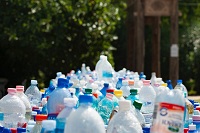
European polypropylene (PP) prices are moving up in March, but the market is no tighter than balanced, according to most buyers.
– Propylene contract up €25/tonne
– Prebuying ahead of Brexit, cracker outages
The March propylene contract rose by €25/tonne, and most sellers have managed to pass this – or at least a large portion of this – to the market.
Hikes as high as €40/tonne have also been talked of.
Demand has been strong in the first quarter, according to several producers, although smaller sellers are not convinced because some applications, such as automotive and biaxially oriented polypropylene (BOPP), are facing tough conditions.

A genetically engineered microbe could be used to break down woody plant material and create a biodegradable alternative for plastic.
Finding environmentally friendly alternatives to plastic is a mission taken on by a number of research teams, and the focus of these endeavors is typically the sugars and cellulose in plant cell walls.
But while researchers have been able to break down plant materials and extract sugars, an abundant polymer called lignin is stripped away in the process. Lignin is so abundant and carries such little value that it’s typically just burned during manufacturing processes.
If this lignin could be broken down and utilized efficiently, it could be used to make durable materials that could replace plastic. Unfortunately, the molecule is large, complex, and challenging to break down, and so it has been long overlooked until now.

Proposed measures in the UK to introduce a tax on plastics packaging containing less than 30% of recycled product by 2022 is a “blunderbuss” regulation to fit political agendas that fails to recognise the complexity of the system, an executive at European chemicals major INEOS said on Thursday.
The measures fail to engage with the complexity and requirements of the plastics packaging sector, with the 30% target an arbitrary standard, according to INEOS director director Tom Crotty.
Different materials may have different requirements, and the regulation would be feasible for some forms of plastic packaging but not for others, with targets of 100% appropriate for some forms and below the 30% mark for others, he added.
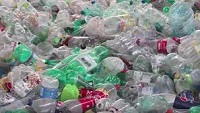
Polyester Fiber Market Size By Grade (PET, PCDT), By Product (Solid, Hollow), By Application (Carpets & Rugs, Non-Woven Fabrics, Fiberfill, Apparels, Home Textiles), Industry Analysis Report, Regional Outlook (U.S., Canada, Germany, UK, France, Spain, Italy, China, India, Japan, Australia, Indonesia, Malaysia, Brazil, Mexico, South Africa, GCC), Growth Potential, Price Trends, Competitive Market Share & Forecast, 2017 – 2024
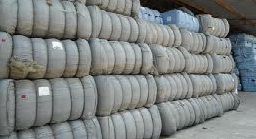
The Chinese government’s latest stimulus measures should give a boost to economic activity in the coming months following the demand shock in December, the CEO of DowDuPont said on Thursday.
“China is phenomenal at stimulating its economy. In two to three months, it should really loosen things up,” said Ed Breen, CEO of DowDuPont, at a meeting of the Chemical Marketing & Economics Group in New York.
The severe downturn in China’s market in December 2018 came as a shock to the chemical industry – a “fascinating” phenomenon, he noted.

An existing line dedicated to 500-mL PET bottles couldn’t produce more than 42,000 bottles/hr. So management at Altmühltaler Mineralbrunnen decided it had to be replaced.
The roll-fed glue-applied labeler relies on hot melt for label application.
The end-of-line stretch wrapper applies stretch film from two separate rolls simultaneously to speed up the overall process.
Germany’s Altmühltaler Mineralbrunnen GmbH produces bottled mineral water brands for large German retail chains, hotels, and restaurants. The company has several facilities in Treuchtlingen, Central Franconia, and Baruth, a small town near Berlin.
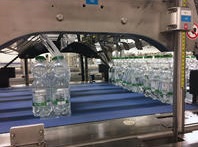
Together with officials from the government, Dr Frank Heislitz (third from right, CEO of Freudenberg Performance Materials) and Atsushi Shimoda (second from right, CTO of Japan Vilene Company) inaugurate the new production line. © Freudenberg
Together with officials from the government, Dr Frank Heislitz (third from right, CEO of Freudenberg Performance Materials) and Atsushi Shimoda (second from right, CTO of Japan Vilene Company) inaugurate the new production line. © Freudenberg
Freudenberg & Vilene Nonwovens brought a new production line for car headliners into operation at its Suzhou site in Eastern China. This enables the company to meet the increasing demand for high-quality car headliners in China and South-East Asia.
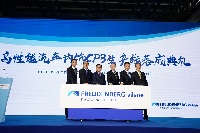
NAIROBI – As global concern over plastic pollution rises, corporate giants such as Coca-Cola and Unilever are pumping cash into a recycling initiative in Kenya they hope will provide a model for other developing countries.
However, the voluntary scheme lacks legal backing, leaving a few companies to pick up the bill for everyone — a problem that doomed a similar program here before.
Many multinationals are scrambling to support recycling, stung by criticism from environmentalists over pollution and keen to be able to re-use valuable polyethylene terephthalate (PET) plastic. Single-use plastic is a key topic at next week’s global United Nations Environmental Program summit.
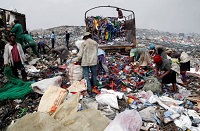
As a current participant in Leadership Knoxville’s Introduction Knoxville programme, 4M Carbon Fiber’s Chairman Rodney Grubb provided a brief overview to the IK group about the carbon fibre industry and 4M’s role in “pioneering revolutionary carbon fibre manufacturing technologies right here in our own backyard”.
“This was a great opportunity for me to highlight the exciting work we are doing at 4M, while also making connections with other business and community leaders. Contributing positivinsidecomposites.com/4m-carbon-fiber-discusses-carbon-fibre-manufacturingely to the fabric of our community is important to us at 4M, and we want to be a significant part of Knoxville’s success,” said Mr Grubb.
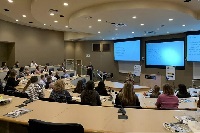
Researchers at the National Graphene Institute (NGI) have created a method to produce scalable graphene-based yarn. Such e-textiles may have great potential for sportswear, healthcare, aerospace, and fitness applications, ans so are attracting research attention worldwide.
Graphene-based yarn to be used for advanced wearable e-textiles
Integrating textile-based sensors into garments in the manufacturing process is still time-consuming and complex. It is also expensive non-biodegradable, unstable, metallic conductive materials are still being used. Now, the NGI researchers have developed a process that has the potential to produce tonnes of conductive graphene-based yarn. It is possible to do this using current textile machinery without any addition to production costs. The produces graphene-based yarn is also said to be flexible, cheap, biodegradable, and washable.

Reports out of China state that Chinese authorities have audited and approved research by Linglong Tire into the “large-scare application” of graphene rubber composites in tires”.
The research was conducted jointly by Beijing Tiancheng Linglong Tire, a wholly-owned subsidiary of Linglong Tire, and Beijing University of Chemical Technology. An audit was conducted by Beijing Municipal Science & Technology Commission along with other Chinese technology institutes.
Led by South China University of Technology professor Guo Baochun, the team completed trial production of graphene-enhanced tires at Linglong’s Zhaoyuan factory. This involved a graphene ‘pre-treatment’ technology that enables tires to be made without changing existing manufacturing processes or equipment. Linglong did note, however, that the technology required some adjustments to the process to help ensure the feasability of production.
